
I don’t mean to brag, but I’ve got irritable bowel syndrome, says a character of a sitcom, in the episode aired a few years ago. Irritable bowel syndrome, also known as IBS, used to be a rare condition, but - due to industrialization and urbanization - it is now one of the most common disorders in the world. The term is even used figuratively, in a derogatory sense.
The numbers of new reported cases of irritable bowel syndrome (IBS) kept increasing into the 21st century when they reached almost epidemic proportions. As the amount of information available on the Internet exploded, so did the web searches about IBS. But then the disorder "came out of the closet", and google searches for "irritable bowel syndrome" started to dwindle, reaching a quarter of what they used to be at the peak. This downtrend mirrored ambulatory data (National Ambulatory Medical Care Survey and the National Hospital Ambulatory Medical Care Survey) showing that by 2010, the rate of IBS-related visits decreased roughly by 37%. Is IBS no longer a problem?
Online health communities, blogs and social networks have, over the years, changed the relationship between sufferers of IBS (and many other conditions) and their doctors. Clinical practice shifted from treatment to self-management and from medical specialists (secondary care) to primary care physicians and ‘expert patients’. 10-20 years ago, doctors were experimenting with many different medications to address IBS complaints (especially medicines used to alleviate depression and supplement fiber), but now they are more likely to prescribe non-medication therapies: diet/nutrition counseling, mental health counseling, and/or stress management. Among prescribed medications, there was increased use of gastrointestinal-specific antibiotics and probiotics, but also laxatives, proton pump inhibitors (for heartburn), antiemetics (against nausea), bile acid sequestrants (for diarrhea), opioid and non-opioid analgesics (p=0.001 for each). Prescription of fiber (p=0.001), antidepressants (p=0.002), antacids (p=0.010), and histamine-2 receptor antagonists (p=0.001) significantly decreased. Modern IBS patient is more informed. Modern doctors know more about IBS. They know it's not in your head and even started suggesting this is a disease, not a syndrome. But diagnostic tests confirming IBS are still lacking and so are answers to many questions. 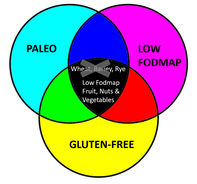
As interest in ambulatory care for IBS was dropping, diets reducing IBS symptoms started to explode in popularity. So that sufferers of IBS-related symptoms have been even outpaced by the growing numbers of people following these trendy diets.
Gluten-free has been one of the biggest diet trends that made social events much less isolating for IBS sufferers with gluten and wheat sensitivities. Low sugar and Paleo were also helpful to many. But low FODMAP diet seemed to be most beneficial for IBS. Yet, even this diet might not be a cure-all for IBS and can't be recommended in the longer term. 
While there are dietary and stress management approaches along with a few drugs that can be used to treat IBS, what works best is when the sufferer can find a pattern of when their disease is at its worst, and can figure out ways to avoid these conditions.
Social support is another important factor. Analyses indicated that it reduces severity of IBS symptoms, suggesting that the mechanism by which social support alleviates pain is through a reduction in stress levels. And so IBS sufferers keep joining online support groups. In the last 5 years, IBSgroup.org got 25 thousand more sign ups, growing from 41 to over 66 thousands. New IBS support groups on Facebook merged, some as large as 11 thousand members. Yet, as a new US survey reveals, IBS sufferers see healthcare providers and the public in general lacking in empathy and understanding. The condition is still difficult to diagnose and often even more difficult to treat. Afraid no more, but still in search of empathy and cures.
REFERENCES
Camilleri M, Oduyebo I, & Halawi H (2016). Chemical and molecular factors in irritable bowel syndrome: current knowledge, challenges, and unanswered questions. American journal of physiology. Gastrointestinal and liver physiology, 311 (5) PMID: 27609770
Lacy BE, Patel H, Guérin A, Dea K, Scopel JL, Alaghband R, Wu EQ, & Mody R (2016). Variation in Care for Patients with Irritable Bowel Syndrome in the United States. PloS one, 11 (4) PMID: 27116612
Dorn, S., & Meek, P. (2013). Su1024 Ambulatory Care for Irritable Bowel Syndrome in the United States, 1993-2010 Gastroenterology, 144 (5) DOI: 10.1016/S0016-5085(13)61392-X
Lackner, J., Brasel, A., Quigley, B., Keefer, L., Krasner, S., Powell, C., Katz, L., & Sitrin, M. (2010). The ties that bind: perceived social support, stress, and IBS in severely affected patients Neurogastroenterology & Motility, 22 (8), 893-900 DOI: 10.1111/j.1365-2982.2010.01516.x
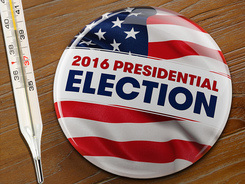
Elections are bad for your health.
More than half of Americans, independently of their party preference, are stressed about upcoming elections (see this August 2016 survey of over 3.5 thousand adults conducted by Harris Poll on behalf of American Psychological Association). Especially the oldest and the youngest voters (Traditionalists and Millennials). Social media is one of the major factors making this stress even worse. Election stress is higher than we think - judging by cortisol levels in saliva versus self-reported emotional distress. Stress is high at the ballot box - higher than when voting at home by mail-in ballot and significantly higher than on an average day and a few days after the election - unless we strongly dislike post-election media coverage. 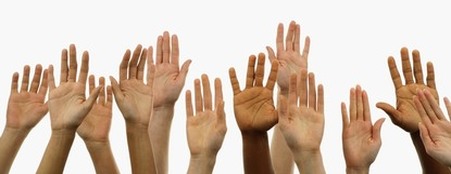
Elections may cause anxiety, obsessive compulsive behavior and even depression. And then there are post-election blues. Stock market always performs weaker. Supporters of the winning candidate go through withdrawal pains, although, research shows, they might get more interested in the Internet porn. Supporters of a losing candidate move through sadness and decreased levels of testosterone.
Yet, anxiety can sharpen our eyes and help us learn. To vote is like the payment of a debt (R.B. Hayes, 19th US president). One who does not vote has no right to complain (novelist Louis L'Amour). Always vote for principle, though you may vote alone, and you may cherish the sweetest reflection that your vote is never lost (John Quincy Adams, 6th US president) And no matter what happens, we should not feel powerless for we actually possess more power than ever before to control our own lives and make them what we want to be.
REFERENCES
Stanton SJ, Beehner JC, Saini EK, Kuhn CM, & Labar KS (2009). Dominance, politics, and physiology: voters' testosterone changes on the night of the 2008 United States presidential election. PloS one, 4 (10) PMID: 19844583
Markey, P., & Markey, C. (2011). Pornography-seeking behaviors following midterm political elections in the United States: A replication of the challenge hypothesis Computers in Human Behavior, 27 (3), 1262-1264 DOI: 10.1016/j.chb.2011.01.007
Waismel-Manor I, Ifergane G, & Cohen H (2011). When endocrinology and democracy collide: emotions, cortisol and voting at national elections. European neuropsychopharmacology : the journal of the European College of Neuropsychopharmacology, 21 (11), 789-95 PMID: 21482457
Blanton, H., Strauts, E., & Perez, M. (2012). Partisan Identification as a Predictor of Cortisol Response to Election News Political Communication, 29 (4), 447-460 DOI: 10.1080/10584609.2012.736239
Neiman J, Giuseffi K, Smith K, French J, Waismel-Manor I, & Hibbing J (2015). Voting at Home Is Associated with Lower Cortisol than Voting at the Polls. PloS one, 10 (9) PMID: 26335591
What can we learn from Halloween? A lot, judging by numerous scientific studies and less scientific surveys. 
Halloween could help to collect a wide range of extreme facial expressions, including highly negative situations when children discover their parents ate up all their Halloween candy. This is what was done in the recent paper published in Emotion, the journal of American Psychological Association, and in an ongoing Jimmy Kimmel's challenge pictured above. Smile! In the era of the Internet of things we are been watched. And our facial expressions show how we feel. Artificial Intelligence is quickly becoming more proficient at recognizing micro-expressions of human faces, mastering emotional intelligence and resurfacing our fears of humanity's extinction. But are we there yet? The Halloween emotions paper shows that even if you are not a poker player or a strategically-controlling-emotions athlete, just a simple kid, isolated facial expressions may not tell the whole story.
Halloween provides a look into human psychology in many other ways. This celebration helps to learn about "uninhibited" human behavior. The kind that increases hospital statistics on Halloween, including sugar-high accidents for kids and alcohol-/drug- related injuries for adults. And the kind of "bad behavior" that supports steeling Halloween candy.
Two more Halloween experiments - investigating children's fantasy beliefs and political preferences - showed that kids are not as simple as one may think and Halloween can provide deep insights into human psychology.
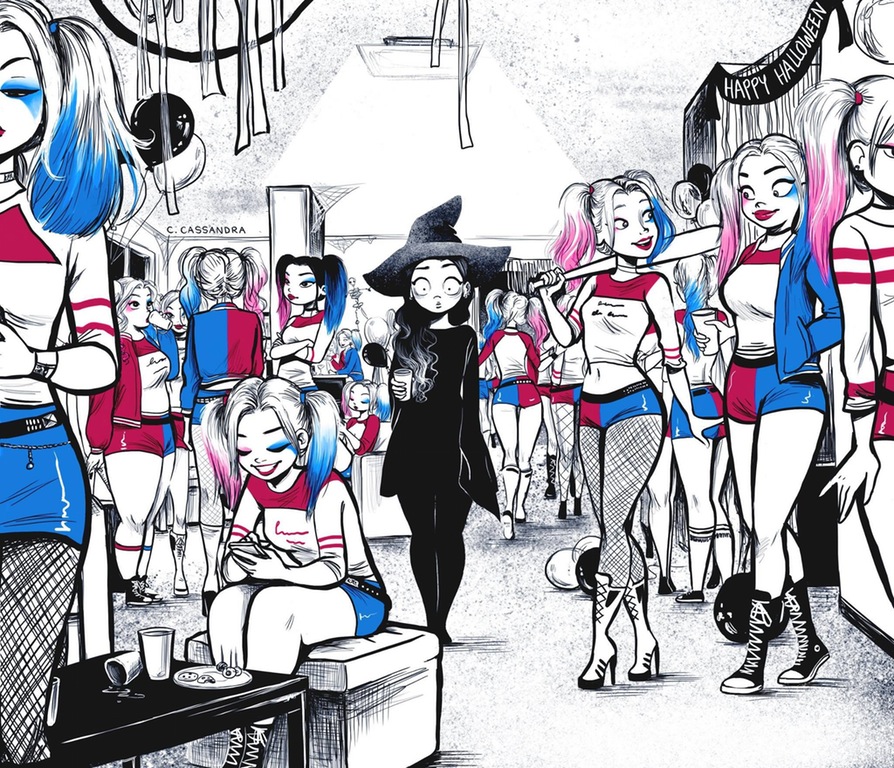
Retail trends provide additional insights - telling that the 11-year reign of princesses is over, as superheroes are now more popular than ever. It's a digital geek-centric age after all. Still, all those techno hipster and simply magical characters always bring Halloween fun. And most importantly it teaches once again that you'll get further with treats than with tricks. Diversity is not optional!
REFERENCES
Wenzler S, Levine S, van Dick R, Oertel-Knöchel V, & Aviezer H (2016). Beyond pleasure and pain: Facial expression ambiguity in adults and children during intense situations. Emotion (Washington, D.C.), 16 (6), 807-14 PMID: 27337681
Diener, E., Fraser, S., Beaman, A., & Kelem, R. (1976). Effects of deindividuation variables on stealing among Halloween trick-or-treaters. Journal of Personality and Social Psychology, 33 (2), 178-183 DOI: 10.1037//0022-3514.33.2.178
Woolley, J., Boerger, E., & Markman, A. (2004). A visit from the Candy Witch: factors influencing young children's belief in a novel fantastical being Developmental Science, 7 (4), 456-468 DOI: 10.1111/j.1467-7687.2004.00366.x
Jamison, J., & Karlan, D. (2016). CANDY ELASTICITY: HALLOWEEN EXPERIMENTS ON PUBLIC POLITICAL STATEMENTS Economic Inquiry, 54 (1), 543-547 DOI: 10.1111/ecin.12233
|
Categories
All
Environment
|

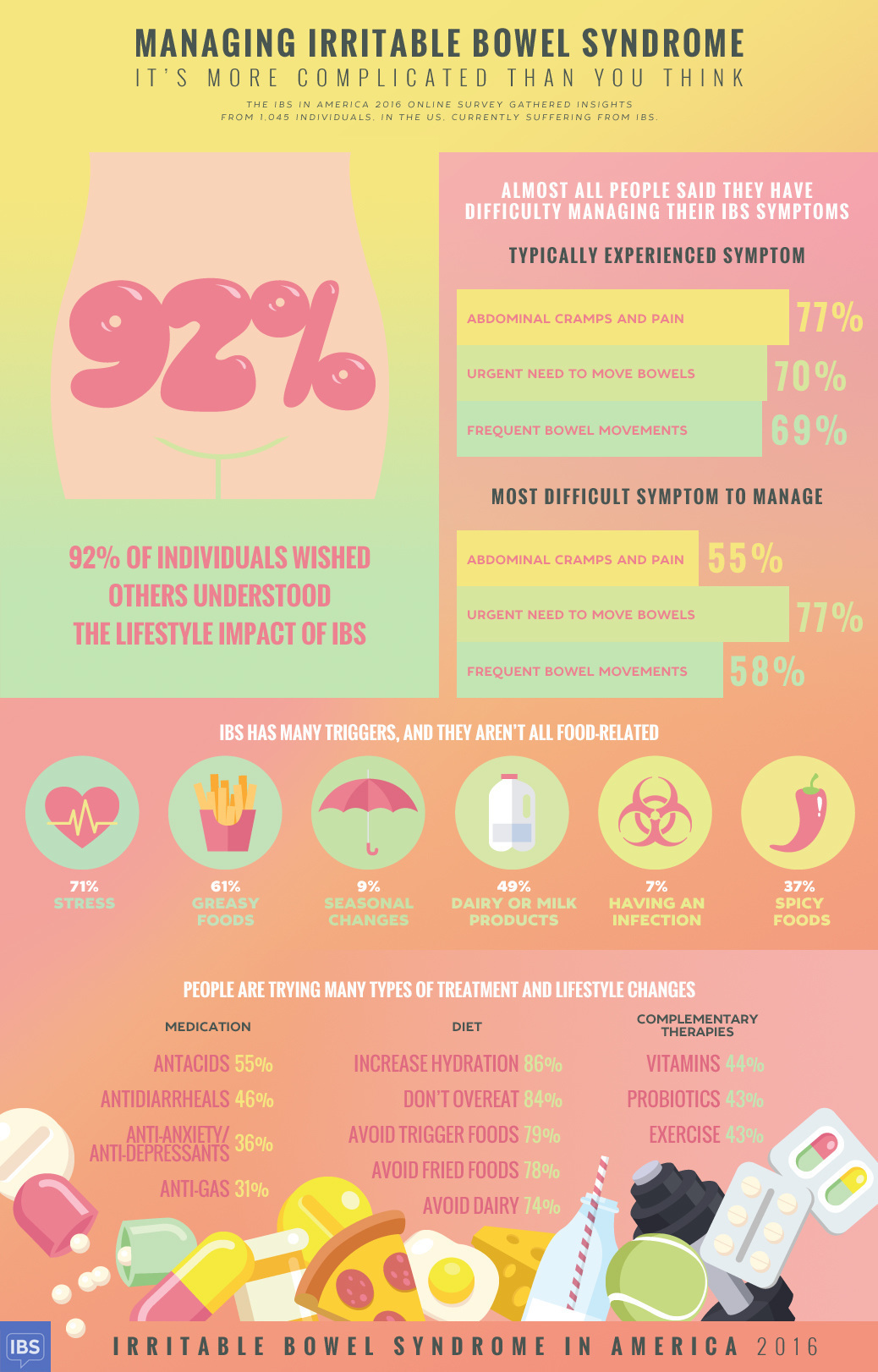
 RSS Feed
RSS Feed
